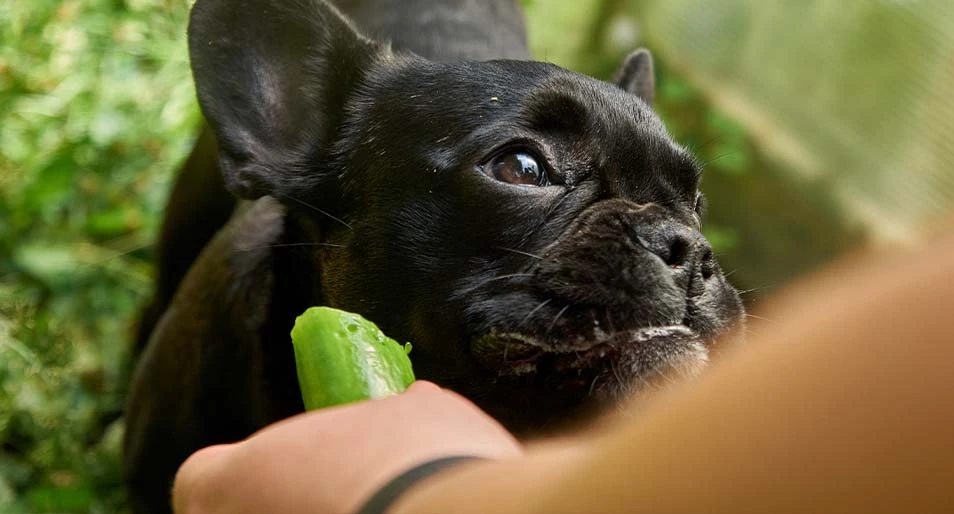PET HEALTH
It can be tricky figuring out what food your dog can and can’t eat. Pickles are a common addition to sandwiches, hot dogs, and even some salads. While cucumbers are safe for dogs to eat, what about their salty counterpart: the pickle? The good news is that pickles aren’t considered toxic to dogs, but the answer is more complicated than a simple yes or no. Here is everything you need to consider before giving your dog pickles.
What Are Pickles?
Pickles are cucumbers soaked or fermented in vinegar, salt, herbs, and spices. They are delicious due to their delicate balance of sweetness, saltiness, and crunchiness. Many cultures have a recipe for pickles, including chilis, garlic, dill, or onions. Some sandwich varieties of pickles contain sugar in the recipes to complement burgers and deli meats.
Get pet care tips and tricks for all ages
Are Pickles Good for Dogs?
We know pickles are great and tasty for us humans. Dill pickles, for example, introduce antioxidants into our diets that are critical for a well-balanced immune system.² But can dogs eat dill pickles? This variety of pickle is low in calories, plus it contains many vitamins, including vitamin K, vitamin C, and vitamin A.²
Despite these great attributes, your dog shouldn’t have too many pickles. Here are three reasons why:
1. Pickles are high in sodium
Sodium is an essential part of your dog’s diet. However, pickles may not be the best option for dogs with existing health conditions like high blood pressure.
According to ASPCA, pet owners shouldn’t feed their dogs extremely salty foods because the additional sodium can lead to excessive thirst and urination.3 Pickles may have lower doses of sodium than foods like chips or pretzels. Still, it’s important to monitor your dog’s daily sodium intake. Talk to your veterinarian about your dog’s daily routine to ensure that you aren’t giving them more salt than necessary.
2. Some pickle recipe ingredients are toxic to dogs
There are many different pickle recipes. Dill pickles are safe for dogs, but double-check the label on your favorite jar of pickles. They may have toxic ingredients like garlic. The spices in some pickle recipes can also upset a dog’s stomach.4 Consider trying a homemade recipe so you can safely measure the ingredients included!
3. There are safer alternatives
The risks associated with pickles as a treat far outweigh the benefits. Cucumbers, pickles' sweeter parent, are safer for dogs to eat. Make sure you cut the vegetables into bite-size pieces to avoid your pet choking on the cucumber or pickle. If you opt for a pickle, choose ones that are plain or contain dill.
Pickles are Safe for Dogs, but There Are Better Treats
Overall, pickles aren’t harmful to dogs in moderation. Offering your dog a plain pickle every once in a while is okay! Just don’t give your dog pickles covered in garlic, peppers, or onions because these ingredients are highly toxic to your pet. Caring for your pet is stressful enough, especially with increasing medical costs. Instead of pickles, give your dog plain cucumbers or another vegetable as a healthier treat.
We advise visiting your dog’s veterinarian if you are unsure how to manage your pet’s diet. Your vet understands that your dog’s health is your priority. They will offer guidance about their diet and lifelong health. MetLife’s dog insurance policies can help ease your worries by covering the costs of veterinary care.¹


